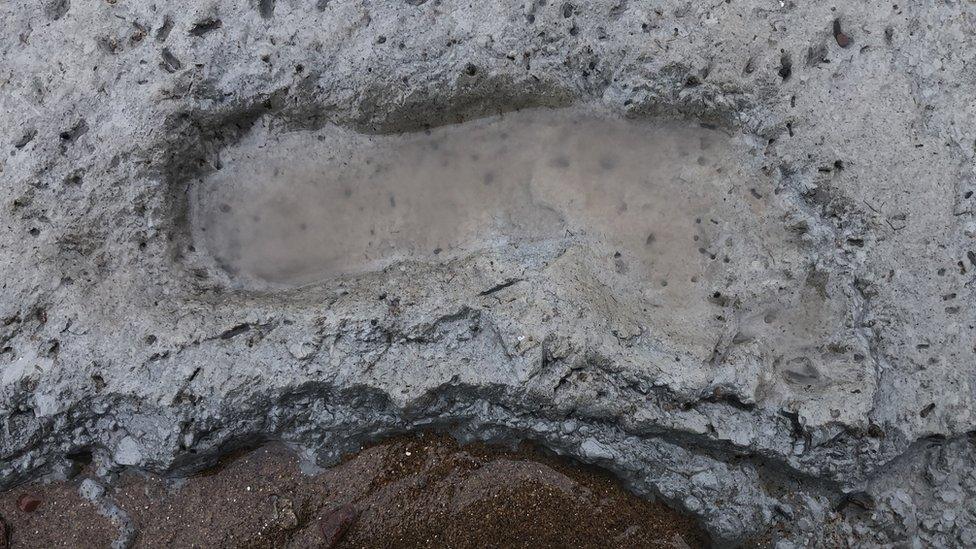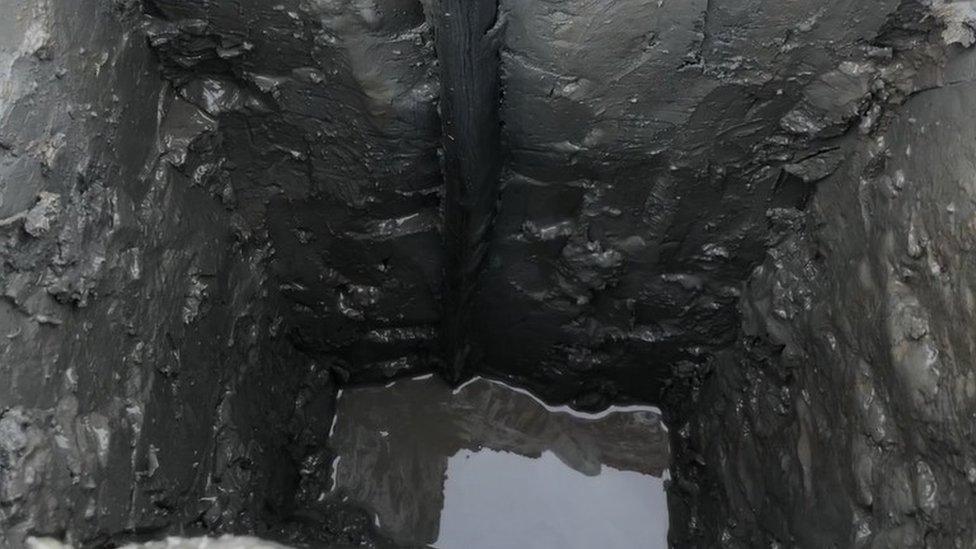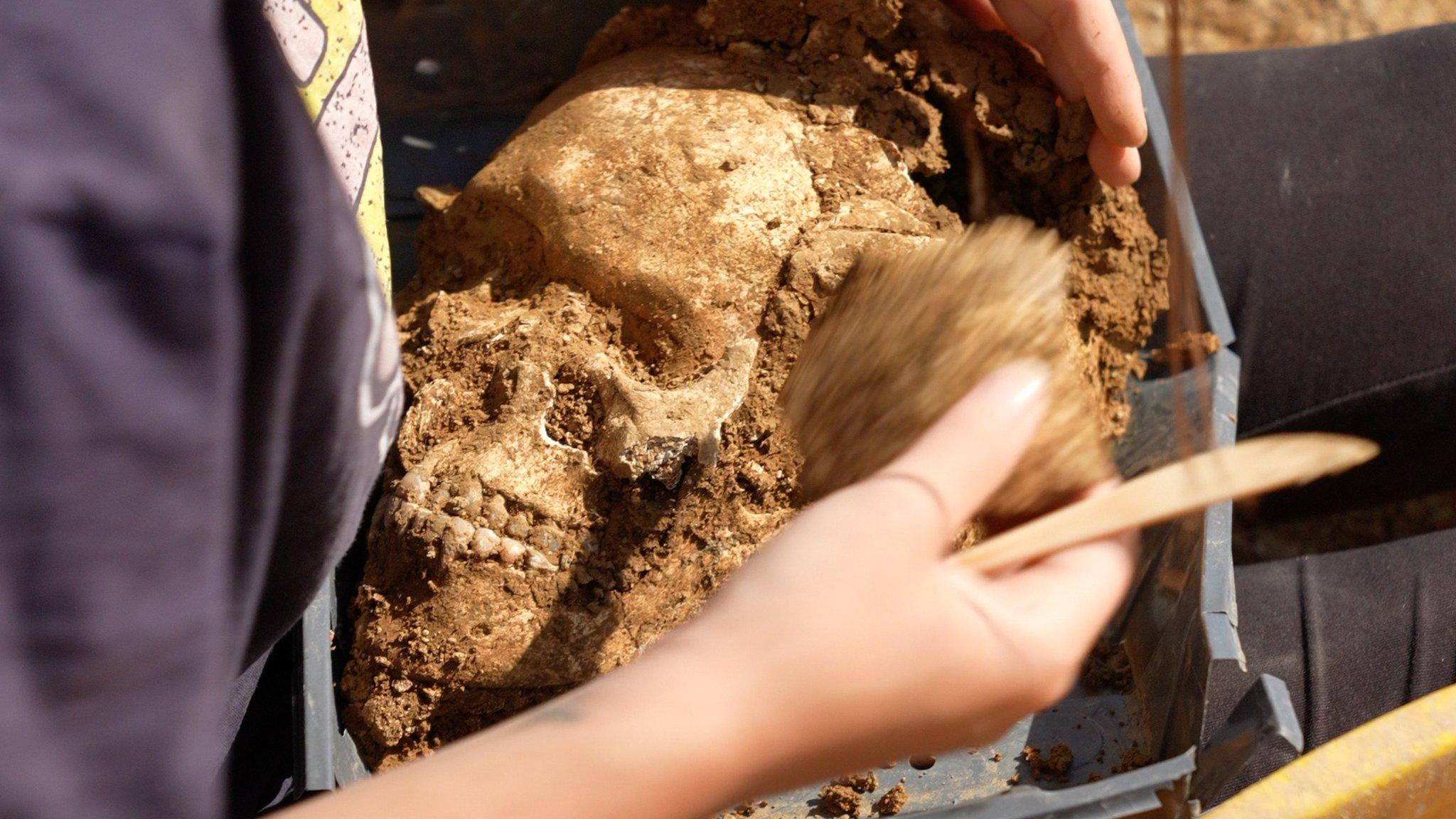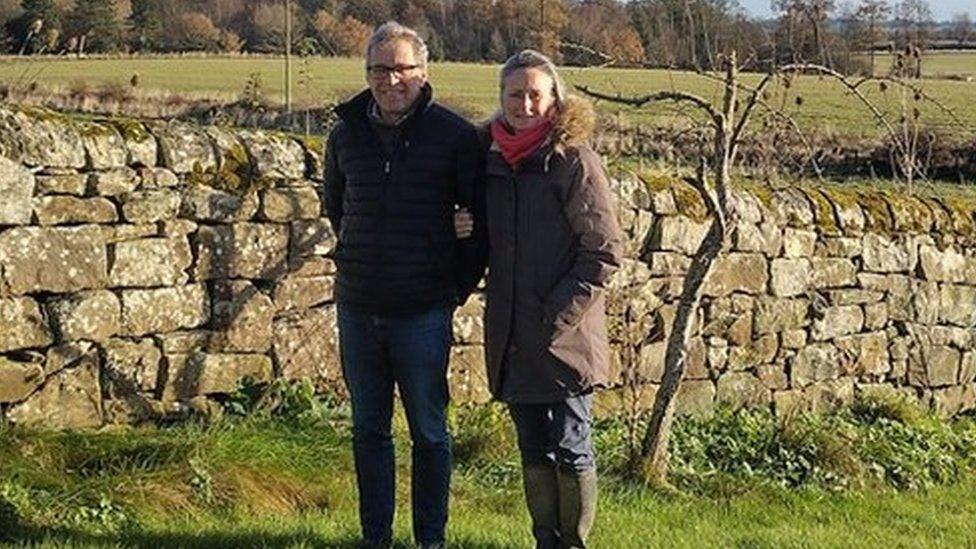University of Reading finds ancient traps and footprints in the Severn Estuary
- Published

The university team hopes the finds will shed light on the lives of hunter-gatherer communities that once lived in Britain
Footprints and ancient traps used for catching fish have been discovered in the Severn Estuary.
The Mesolithic discoveries were made possible thanks to excavations carried out by the University of Reading's archaeology department.
The investigation is part-funded by the National Geographic Society.
The team hopes the finds will shed light on the lives of hunter-gatherer communities that lived in Britain more than seven millennia ago.
The more than 7,000-year-old fishing traps are made from willow withies woven around wooden stakes to create a V-shaped fence in the bed of a former river channel.
Experts from the university believe they were probably used to catch eels and other fish.

The fishing traps are made from willow withies woven around wooden stakes to create a V-shaped fence in the bed of a former river channel
Emeritus Professor Martin Bell, of the University of Reading who led the excavations, said: "The discovery is particularly important because, within the channel containing the fish traps, low tides have revealed hundreds of footprints of people, animals and birds.
"Stormy conditions in September and October 2023 revealed the best exposures of the footprints for many years.
"The dig team had to work quickly to record as much as possible during the period of low spring tides before they became covered by the sea and encroaching sand."
Mr Bell hopes the footprints, which date back to a time before the arrival of farming, provide unique insights into the community that lived in Britain at that time.
He added: "Many footprints belonged to children, some as young as four, showing that they played an active part in the daily life of Mesolithic communities.
"In places, lines of footprints moving in both directions mark footpaths leading from campsites at the island edge to the channel where the traps were located.
"The footprints show how individual camps and activity areas are connected as parts of a living landscape."

Follow BBC South on Facebook, external, X, external, or Instagram, external. Send your story ideas to south.newsonline@bbc.co.uk.
Related topics
- Published3 January 2024

- Published3 January 2024

- Published19 December 2023
